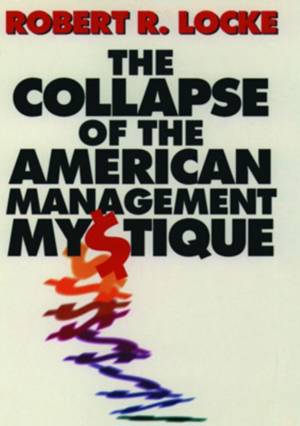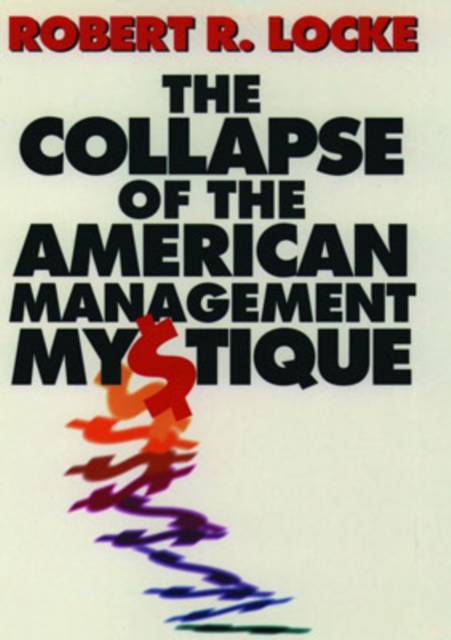
- Afhalen na 1 uur in een winkel met voorraad
- Gratis thuislevering in België vanaf € 30
- Ruim aanbod met 7 miljoen producten
- Afhalen na 1 uur in een winkel met voorraad
- Gratis thuislevering in België vanaf € 30
- Ruim aanbod met 7 miljoen producten
Zoeken
€ 107,95
+ 215 punten
Omschrijving
This is a book on the history and "mystique" of American management--its development and diffusion to other countries, and its subsequent eclipse by Japanese and German approaches.
In this work, Robert Locke traces the evolution of American management in the postwar era--the phenomenon once described by Churchill as that "clear cut, logical, mass production style of thought." He goes on to discuss in detail the views of such business writers as Chandler, Reich, Senge, and Deming. But the force of his critique rests on a thorough examination of alternative forms of management that grew up in West Germany and Japan during the past decades. He argues that these alternative management forms have done a better job managing capitalist economies since the 1970s than has American managerialism.
With an unusually wide-ranging knowledge of management and business thinking in the United States, Germany, and Japan, and the historian's ability to stand back and take the longer view, Locke has written a powerfully argued and challenging book.
In this work, Robert Locke traces the evolution of American management in the postwar era--the phenomenon once described by Churchill as that "clear cut, logical, mass production style of thought." He goes on to discuss in detail the views of such business writers as Chandler, Reich, Senge, and Deming. But the force of his critique rests on a thorough examination of alternative forms of management that grew up in West Germany and Japan during the past decades. He argues that these alternative management forms have done a better job managing capitalist economies since the 1970s than has American managerialism.
With an unusually wide-ranging knowledge of management and business thinking in the United States, Germany, and Japan, and the historian's ability to stand back and take the longer view, Locke has written a powerfully argued and challenging book.
Specificaties
Betrokkenen
- Auteur(s):
- Uitgeverij:
Inhoud
- Aantal bladzijden:
- 368
- Taal:
- Engels
Eigenschappen
- Productcode (EAN):
- 9780198774068
- Verschijningsdatum:
- 18/07/1996
- Uitvoering:
- Hardcover
- Formaat:
- Genaaid
- Afmetingen:
- 161 mm x 239 mm
- Gewicht:
- 721 g

Alleen bij Standaard Boekhandel
+ 215 punten op je klantenkaart van Standaard Boekhandel
Beoordelingen
We publiceren alleen reviews die voldoen aan de voorwaarden voor reviews. Bekijk onze voorwaarden voor reviews.











